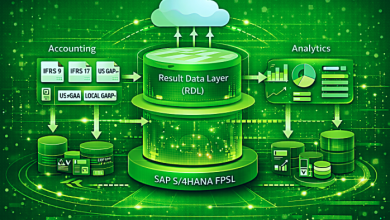In an increasingly complex financial world, artificial intelligence (AI) is stepping in as a game-changer for how individuals manage their money. From budgeting and saving to investment management and tax planning, AI-driven tools are transforming the personal finance landscape. These advancements not only provide efficiency and automation but also enable highly personalized financial experiences that were once the exclusive domain of wealth advisors.
Personalized Budgeting and Smart Spending
One of the most visible ways AI is impacting personal finance is through intelligent budgeting tools. Traditional budgeting methods often require users to manually input transactions and categorize expenses. AI-powered platforms, on the other hand, automatically track spending, recognize patterns, and categorize transactions with impressive accuracy.
Tools like Mint, YNAB (You Need a Budget), and Cleo use machine learning to understand user behavior and offer tailored advice. AI can alert users when they’re overspending in a category, predict future expenses based on historical trends, and suggest cost-saving opportunities. These systems get smarter over time, learning more about your habits and adjusting their recommendations accordingly.
Automating Savings and Investments
AI is also making it easier to save and invest without lifting a finger. Robo-advisors like Betterment, Wealthfront, and SoFi Invest use algorithms to recommend diversified investment portfolios based on a user’s risk tolerance and financial goals. Once set up, these platforms automatically rebalance portfolios, reinvest dividends, and even adjust strategies based on changing market conditions or life events.
Micro-saving and micro-investing apps like Acorns and Qapital take automation a step further. They round up spare change from purchases or apply AI-based rules (e.g., “save $2 every time it rains”) to help users passively build savings. These applications remove the emotional friction often associated with saving, making wealth accumulation more consistent and less intimidating.
Enhancing Credit and Debt Management
Managing debt and maintaining a healthy credit score are critical elements of personal finance. AI is helping consumers better navigate this space by offering actionable insights and credit monitoring.
AI tools can analyze credit card and loan payments, identify patterns in debt accumulation, and simulate different payment strategies to minimize interest. Platforms like Tally or Upstart not only consolidate and automate payments but also use predictive analytics to optimize payoff plans and provide users with the most favorable repayment options.
Credit scoring is also being redefined by AI. Instead of relying solely on traditional metrics like payment history and credit utilization, some fintech companies are incorporating alternative data such as rent payments, utility bills, and even social behaviors to create a more inclusive and dynamic credit scoring model.
Streamlining Taxes and Financial Compliance
Tax season has long been a source of stress for individuals, especially for those with multiple income sources, gig economy jobs, or self-employment. AI is simplifying this process through intelligent tax filing platforms that reduce manual input and human error.
Tax software like TurboTax and H&R Block now use AI to automatically import financial documents, including pay stubs, bank statements, and tax forms. They guide users through deductions and credits by analyzing their financial profiles, often uncovering savings that would otherwise go unnoticed.
Additionally, some apps monitor financial transactions throughout the year to help users proactively prepare for taxes, instead of scrambling last minute. For freelancers and small business owners, AI-driven platforms like QuickBooks Self-Employed offer real-time tax estimates and expense tracking, ensuring compliance while minimizing surprises.
Virtual Financial Assistants
Perhaps one of the most consumer-facing AI innovations is the emergence of virtual financial assistants. These digital advisors, often integrated into banking apps, use natural language processing (NLP) to interact with users conversationally.
Assistants like Erica from Bank of America or Eno from Capital One can provide balance updates, remind users about due bills, flag unusual spending, and even offer insights into cash flow. As AI continues to evolve, these assistants are becoming more intuitive, capable of understanding complex queries and offering proactive advice based on real-time data.
Security and Fraud Detection
With the increase in digital financial transactions, security has become a major concern. AI is significantly improving fraud detection by identifying anomalies in real-time. Machine learning models can instantly flag suspicious transactions based on behavior that deviates from the norm, far faster than traditional systems.
AI not only detects fraud but can also help prevent it by identifying vulnerabilities in user behavior or system architecture. For consumers, this means added peace of mind knowing that their financial data is under constant, intelligent surveillance.
The Road Ahead
While AI is already making waves in personal finance, the journey is just beginning. As these technologies become more advanced and accessible, we can expect even greater personalization, predictive capabilities, and integration across platforms.
Future developments may include hyper-personalized financial roadmaps that evolve dynamically with life changes, AI financial coaches that act as true partners in achieving financial goals, and seamless aggregation of all financial information income, spending, investments, and taxes, into a unified, AI-powered interface.
Final Thoughts
AI is no longer a futuristic concept; it is actively reshaping the way individuals manage their money. By automating routine tasks, delivering personalized insights, and enhancing decision-making, AI empowers users to take control of their financial lives with confidence and clarity. Whether you’re a budget-conscious student or a seasoned investor, embracing AI in your personal finance strategy can unlock a smarter, more streamlined financial future.





